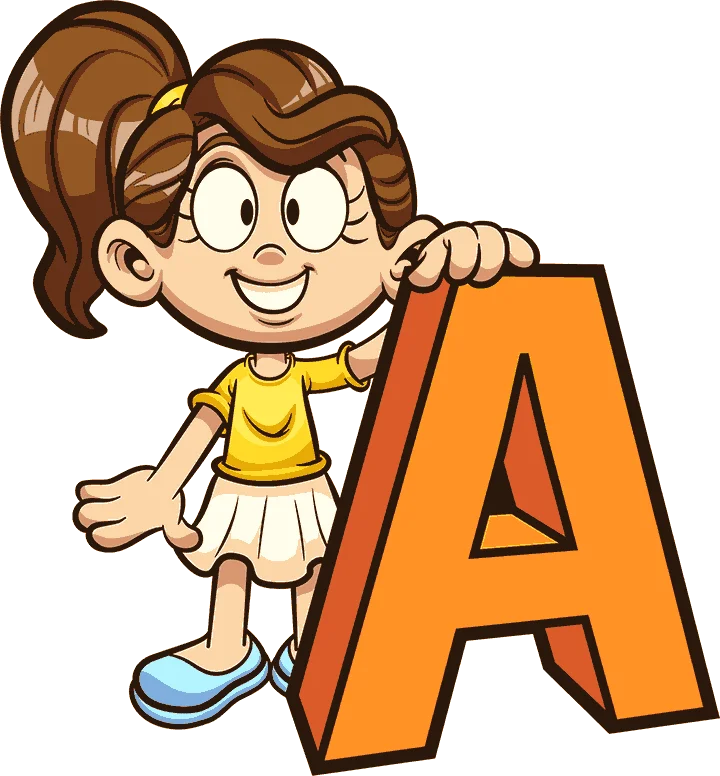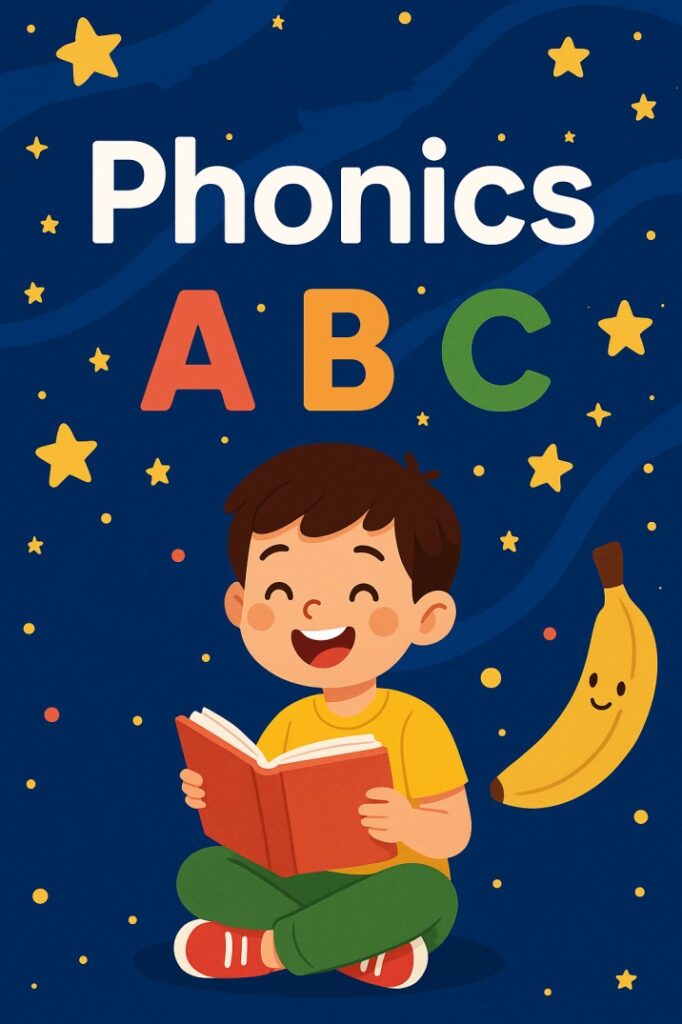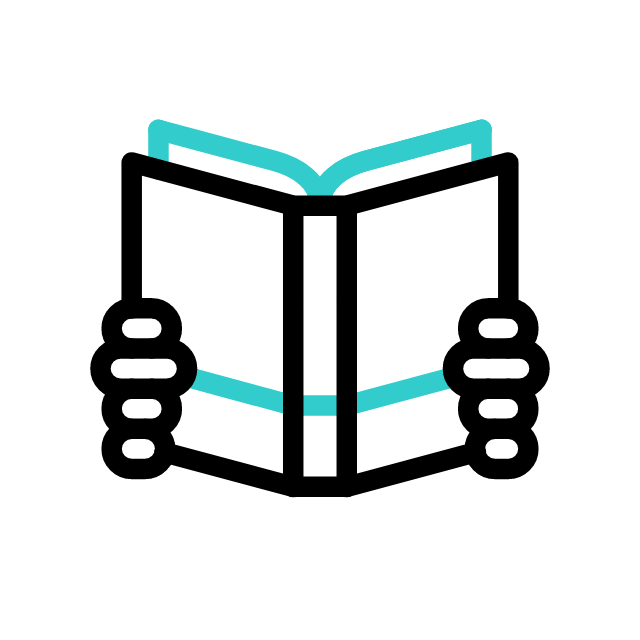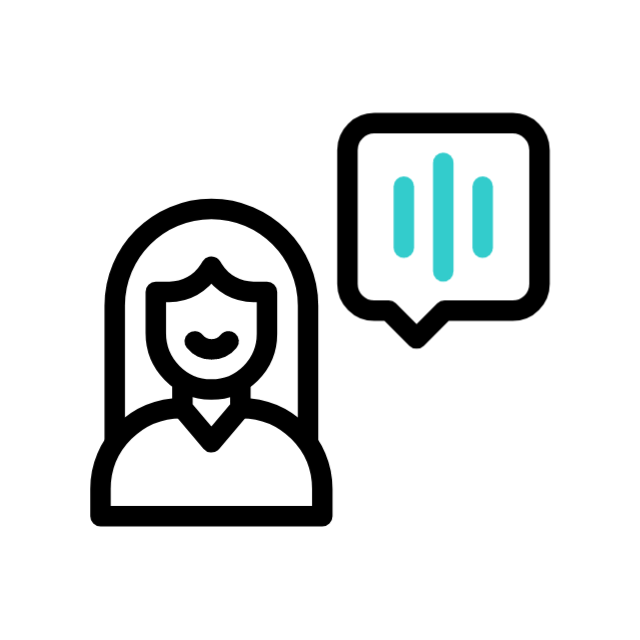Phonics
Empowering Young Minds,
One Sound at a Time!
Boost your child's confidence with our Phonics Program!
- Learn to Read the Right Way
- Expert-Led Classes
- Special Discounts Available!

ABOUT JOLLY PHONICS
At Namaste Classroom, we firmly believe that literacy is the foundation of a child’s learning journey. Our Jolly Phonics Program integrates engaging, multisensory techniques to equip children with essential reading and writing skills. From recognizing letter sounds to mastering grammar and spelling, we guide children step-by-step in their journey to becoming confident and capable communicators.

The Two Stages of Learning with Jolly Phonics
Phonics Stage
The foundational stage introduces letter sounds in a fun and interactive way. Children learn to blend sounds, identify tricky words, and write confidently using systematic methods.
Grammar Stage
Building on their phonics knowledge, this stage dives deeper into the structure of the language. Children explore parts of speech, spelling rules, punctuation, and much more, helping them express themselves accurately and effectively.
What is Phonics?
Phonics is a key component of early literacy. It teaches children how letters and sounds connect, enabling them to decode words for reading and writing. Along with phonemic awareness, vocabulary, fluency, and comprehension, phonics plays a crucial role in developing reading proficiency.
Through engaging activities and structured lessons, our phonics program ensures that children build strong foundations to navigate the complexities of language confidently.

Jolly Phonics Sounds
In Jolly Phonics, children are introduced to 42 primary sounds of English, which go beyond the basic alphabet. These sounds are divided into seven groups and include digraphs—two letters combined to produce a single sound, such as ee or or. This ensures children have a comprehensive understanding of the building blocks of English.
Groups of Sounds:
- Group 1: s, a, t, i, p, n
- Group 2: c k, e, h, r, m, d
- Group 3: g, o, u, l, f, b
- Group 4: ai, j, oa, ie, ee, or
- Group 5: z, w, ng, v, oo, oo
- Group 6: y, x, ch, sh, th, th
- Group 7: qu, ou, oi, ue, er, ar
Key Skills Taught in Jolly Phonics
Our program focuses on developing five essential skills for literacy:
- Learning Letter Sounds: Teaching the 42 main sounds systematically.
- Learning Letter Formation: Helping children write letters accurately.
- Blending: Combining sounds to form words for reading.
- Identifying Sounds in Words: Developing auditory skills to recognize sounds within words.
- Spelling Tricky Words: Building confidence in writing irregular words.
Understanding Different Types of Phonics
- Synthetic Phonics: Words are broken down into their smallest units of sound (phonemes) to teach children how to recognize, blend, and spell words effectively.
- Analytical Phonics: This method helps children identify shared phonemes in groups of words, such as recognizing the "p" sound in pat, park, and push.
- Analogy Phonics: Children learn about word families using phonograms (like -ake in cake), enabling them to spell related words such as make, bake, and fake.
- Embedded Phonics: Phonics is integrated into a comprehensive language program that teaches skills within the context of literature and reading.

Key Skills Taught in Jolly Phonics
Our program focuses on developing five essential skills for literacy:

Learning Letter Sounds
Teaching the 42 main sounds systematically.

Learning Letter Formation
Helping children write letters accurately.

Blending
Combining sounds to form words for reading.

Identifying Sounds in Words
Developing auditory skills to recognize sounds within words.

Spelling Tricky Words
Building confidence in writing irregular words.
Understanding Different Types of Phonics

Synthetic Phonics
Words are broken down into their smallest units of sound (phonemes) to teach children how to recognize, blend, and spell words effectively.

Analytical Phonics
This method helps children identify shared phonemes in groups of words, such as recognizing the "p" sound in pat, park, and push.

Analogy Phonics
Children learn about word families using phonograms (like -ake in cake), enabling them to spell related words such as make, bake, and fake.

Embedded Phonics
Phonics is integrated into a comprehensive language program that teaches skills within the context of literature and reading.

Advantages of Teaching Phonics

Enhances Letter-Sound Association

Improves Understanding of Syllable Patterns

Encourages Independent Reading Skills

Makes Learning Engaging and Delightful
The Grammar Stage
Once children have mastered phonics, our program progresses to the Grammar Stage, where we focus on refining their language skills over six levels, from Grammar 1 to Grammar 6.
This stage involves:
Grammar (and Punctuation):
- Parts of speech: nouns, verbs, adjectives, etc.
- Sentence structure: punctuation, comparatives, superlatives, and homophones.
Spelling:
- Advanced spelling rules and patterns.
- Weekly lessons with spelling lists and dictation practice to strengthen writing abilities.

Why Choose Jolly Phonics at Namaste Classroom?

Multisensory Learning
Our methods are fun, engaging, and designed to keep children excited about learning.

Comprehensive Approach
We combine phonics, grammar, and spelling to ensure children master every aspect of literacy.

Expert Guidance
Our experienced instructors provide personalized attention to nurture every child’s potential.
FAQ Questions
1. How many phonic sounds a to z are there?
Ans: The 26 letters of the alphabet, both separately and together, stand in for the 44 English phonemes. Teaching the correspondence between sounds and the letters used to express them is a key component of phonics instruction. The 44 English phonemes can be represented by hundreds of different spelling options.
2. State the 42 sounds in Jolly phonics.
Ans: Below stated are the 42 sounds in jolly phonics:
s, a, t, i, p, n.
ck, e, h, r, m, d.
g, o, u, l, f, d.
ai, j, oa, ie, ee, or.
z, w, ng, v, oo, oo.
y, x, ch, sh, th, th.
qu, ou, oi, ue, er, ar.
3. What are jolly phonics songs?
Ans: For each of the 42 letter sounds, there are songs called "Jolly phonic Songs" that are arranged to well-known tunes. On the audio CD, youngsters sing these songs in British English. The entertaining songs and motions will make it fun for kids to learn their letter sounds. Their reading and writing will improve if they can recognise the letter sounds in words.
